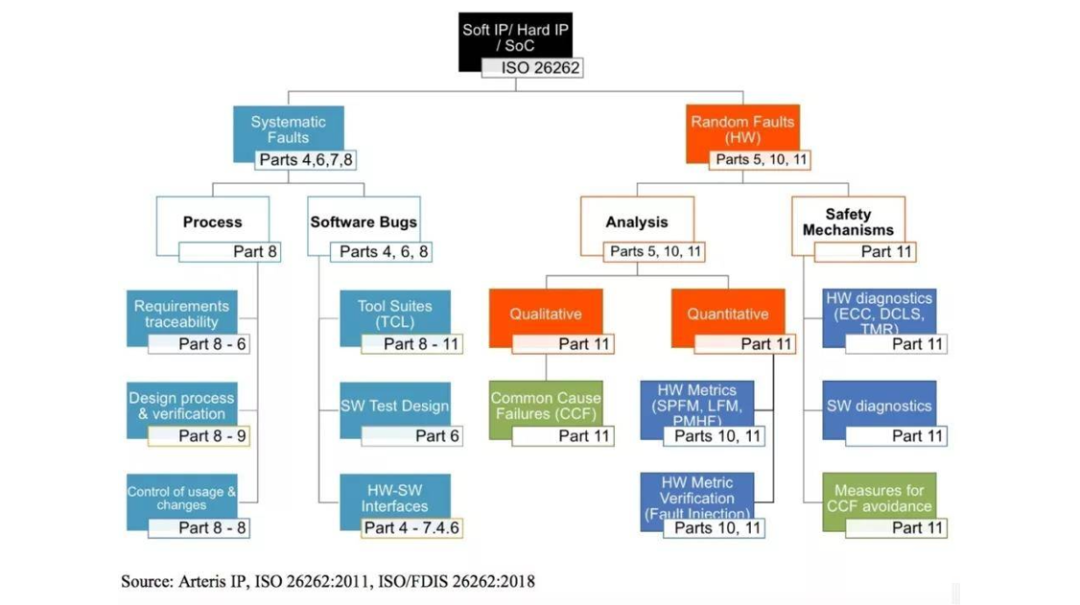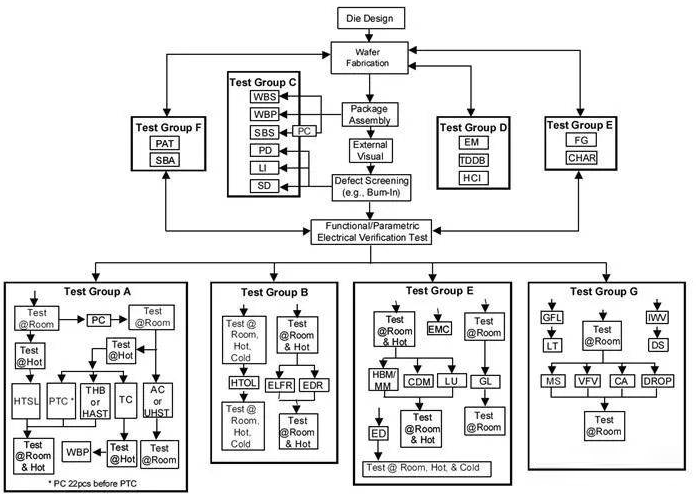International Functional Safety Standard: ISO26262
ISO26262 was released by ISO (International Organization for Standardization) in 2011 and is applicable to road vehicles. It provides functional safety guidelines for the automotive safety lifecycle of vehicle manufacturers and related component suppliers, ensuring the functional safety standard specifications of automotive electronic and electrical systems and their components. The latest version is ISO26262:2018, which covers the entire development process of automotive electronic and electrical systems, including requirements analysis, safety analysis, quality management, design, implementation, integration, verification, confirmation, and configuration, and other links.

Autonomous driving safety level: ASIL
ASIL (Automotive Safety Integrity Level) is a risk classification scheme defined by ISO26 262, used for safety integrity rating in the automotive industry.


Automotive Electronic Reliability Standard: AEC-Q100
AEC (Automotive Electronic Council) is the abbreviation for the Automotive Electronics Council of the United States. AEC-Q is the reliability testing standard for automotive applications, with AEC-Q100 being the first standard of AEC. It mainly focuses on strict quality and reliability confirmation of automotive chips, especially standard specification testing of product functions and performance.
For example, the control unit ECU and sensors of a car's braking electronic system must be ensured to be very reliable. If a malfunction occurs due to aging or damage to electronic components, the braking system may not function properly, leading to brake failure and causing serious traffic accidents.

The ThermoTST TS560 Precision Temperature Cycling System has a wider temperature range of -70 ℃ to+225 ℃, providing strong temperature conversion testing capabilities. The temperature transition takes about 10 seconds from -55 ℃ to+125 ℃; Through long-term multi working condition verification, it meets the requirements of various production and engineering environments. TS560 is a pure mechanical refrigeration system that does not require liquid nitrogen or any other consumable refrigerants.
In automotive chip aging testing, the Precision Temperature Cycling System can be used to test the performance of chips at different temperatures, in order to evaluate their reliability and stability in different temperature environments. This type of testing can help determine the lifespan and performance changes of chips under different temperature conditions, providing valuable information for chip design and optimization. After testing, it is necessary to evaluate the performance and reliability of the chip to ensure the effectiveness and safety of the test. Meanwhile, when using the Precision Temperature Cycling System for testing, it is necessary to follow relevant testing standards and specifications to ensure the accuracy and reliability of the test results.
Part of this article is from the internet. If there is any infringement, please contact us to delete it. Thank you!


















